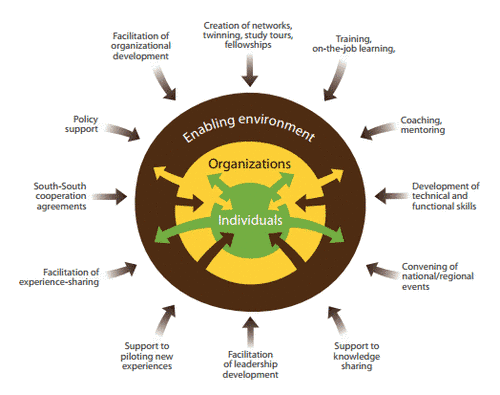All News
SickKids Centre for Global Child Health led IGNIT3 receives funding from Canadian Government to help address malnutrition in Ghana, Malawi and Pakistan
May 29, 2023
Strengthening institutional and human capacity to improve food safety in Kyber Pakhtunkhwa
A Progress Assessment conducted in 2020 concluded that NTEAM’s support through the TAN project had been instrumental in enabling the Government of Khyber Pakhtunkhwa province, Pakistan, to lead the regulation and monitoring of food safety in the province – a requirement for good public health and nutrition.
Posted on December 9, 2020
Safe food is a fundamental pre-condition for survival, and food safety standards are a vital institutional pillar for good nutrition in any country. In Pakistan, provincial governments are responsible for establishing independent Food Safety Authorities to develop and enforce food safety standards for domestically produced foods. The Government of Khyber Pakhtunkhwa (GoKP) enacted the provincial Khyber Pakhtunkhwa Food Safety and Halal Food Authority Act (updated in June 2017), which established the province’s Food Safety and Halal Food Authority (FSA). To ensure that it could effectively implement the Food Safety Act – its primary mandate and an important component of a multi-sectoral approach to nutrition – the FSA sought Nutrition International’s support for the development of its ‘Rules of Business’, the comprehensive set of regulations, orders, guidelines and tools needed for implementing the Act. These regulations have now been officially notified and Gazetted and can be found here.
In parallel, throughout 2017 and 2018, Nutrition International, through its Nutrition Technical Assistance Mechanism (NTEAM)’s Technical Assistance for Nutrition (TANA project, strengthened the human capacity of the FSA, supporting broad consultations of stakeholders and staff recruitment and training, as well as the education and certification of food processers and marketers. Through the TAN project, NTEAM takes a multi-dimensional approach to capacity strengthening, as illustrated by FAO’s Capacity Development Evaluation Framework in Figure 1. This article presents the areas in which NTEAM’s technical assistance strengthened the FSA’s operational capacity, through actions tailored to key individuals, departments and organizations.


Policy, convening, and expertise
The technical assistance first supported the development of the FSA’s Rules of Business through a comprehensive and participative process that involved various departments and stakeholder groups. This strengthened the recognition and buy-in of the resulting products by stakeholders in the province, and laid the foundations for the FSA to better coordinate across departments and stakeholders. The new Rules of Business outline roles and responsibilities, and operational jurisdictions, reducing the duplication of regulatory enforcement mandates and efforts. With support from the technical assistace provider, a 26-member expert technical committee was also established, drawing from government line departments, development partners, academia, standard-setting bodies, and industry. The committee strengthens the capacity of the FSA by providing advice on specialized technical matters, while also ensuring adequate representation of all stakeholder groups and improving coordination.
Institutional development and training
Implementation of food safety standards and regulations is carried out by three categories of staff: food safety officers, food inspectors and food technologists. Nutrition International designed a robust organizational structure and developed a capacity development plan for the FSA and other relevant government staff. A total of 105 staff were recruited in the first phase, and an additional 200 staff are being mobilized to support the upcoming second phase. NTEAM technical assistance providers delivered an extensive suite of training to all FSA staff, starting with Hazard Analysis Critical Control Point systems and other standard subjects in food safety, and followed by specialized training on conformity assessment and mobile laboratory procedures. Importantly, as a result of NTEAM piloting gender equality tools in this project, five women were recruited to the FSA – a notable achievement considering some of the challenges facing the recruitment of female staff in the province.
Knowledge sharing
The roll-out and implementation of the Rules of Business contributed to a substantial increase in knowledge and skills among food processors and marketers. Standard operating procedures for thirty different types of food and food services were developed and are available online for ease of reference. Stakeholders received an orientation in food safety by the FSA before becoming certified, a critical step in its implementation plan. The FSA also carried out a mass media campaign − television, print and social media − to generate greater awareness among food processors, traders and the communities in the province. These knowledge-sharing activities have resulted in increased engagement and uptake of the FSA’s services by food processors and traders.
Capacity development is a continuous process, without a fixed end. It is encouraging to see, according to the Progress Assessment conducted in 2020, that the results of this technical assistance had been sustained over a year after it had concluded, and that capacity development activities were continuing. Nevertheless, it was noted that in-house capacity for delivering training should be further developed. Overall, Nutrition International is proud to have supported the creation of a solid regulatory and institutional foundation for the upcoming second phase of the roll-out of the FSA, and is leveraging this experience to strengthen similar technical assistance engagements in two other provinces of Pakistan.